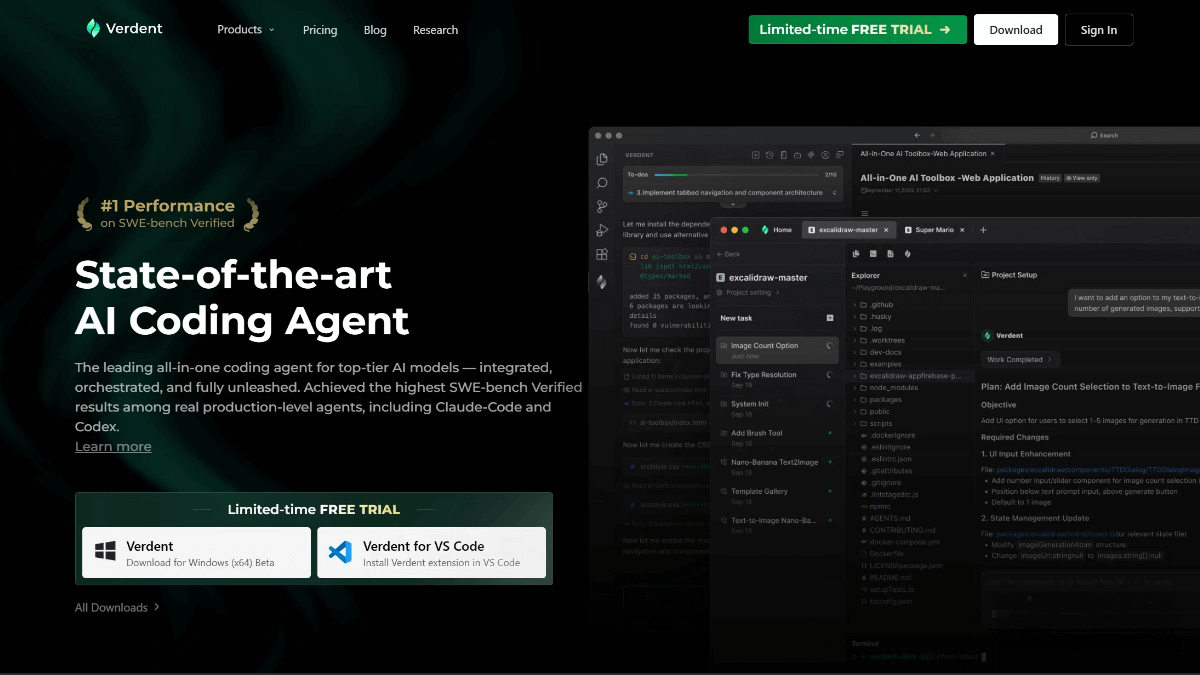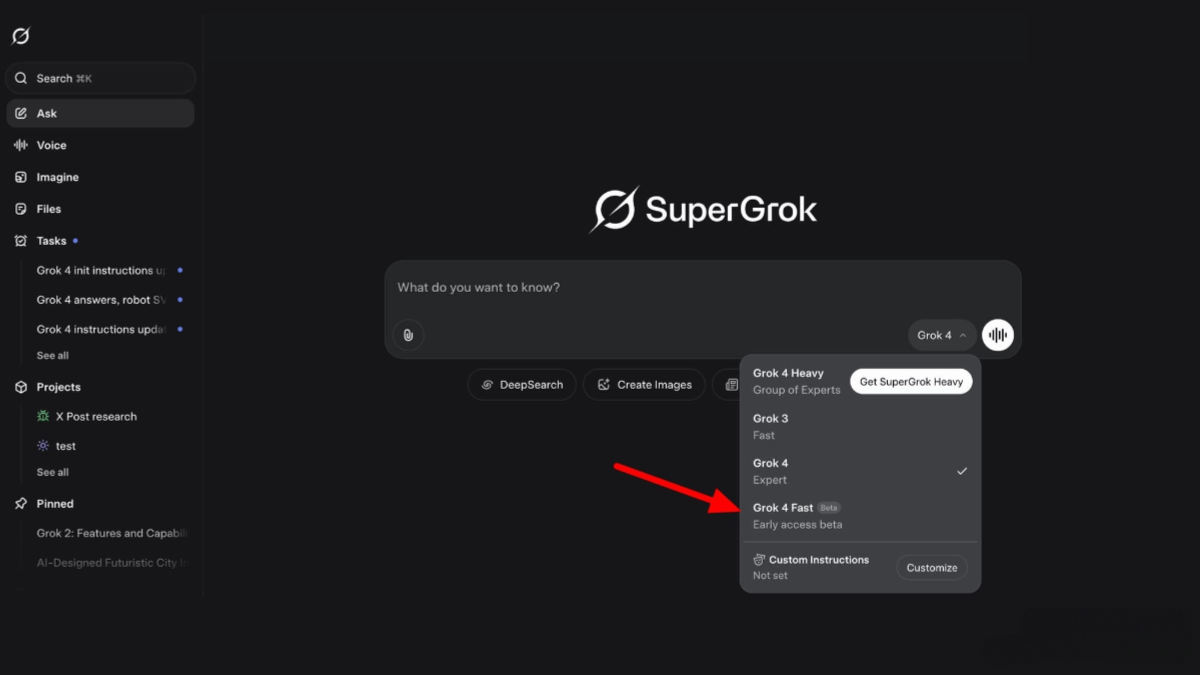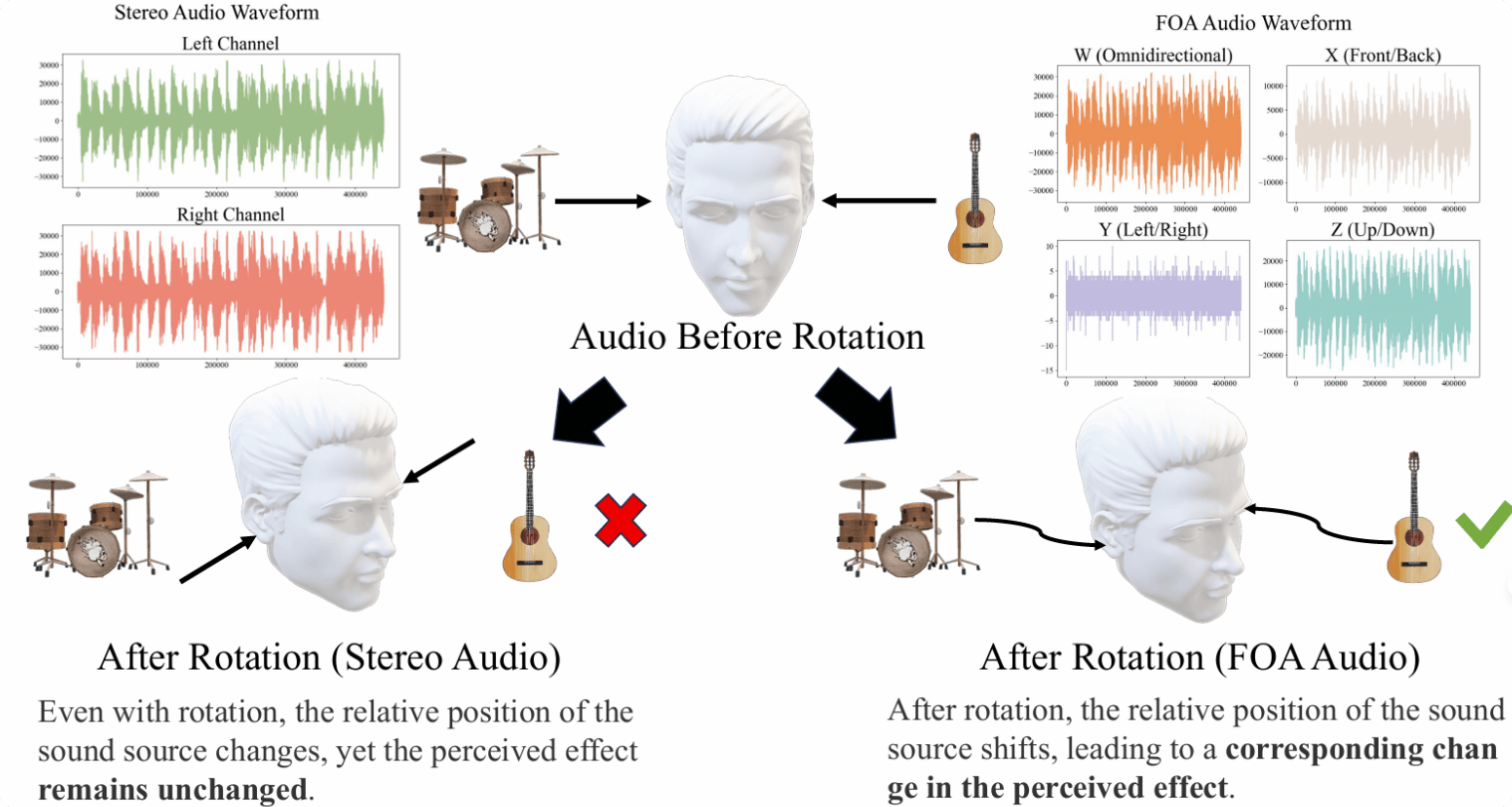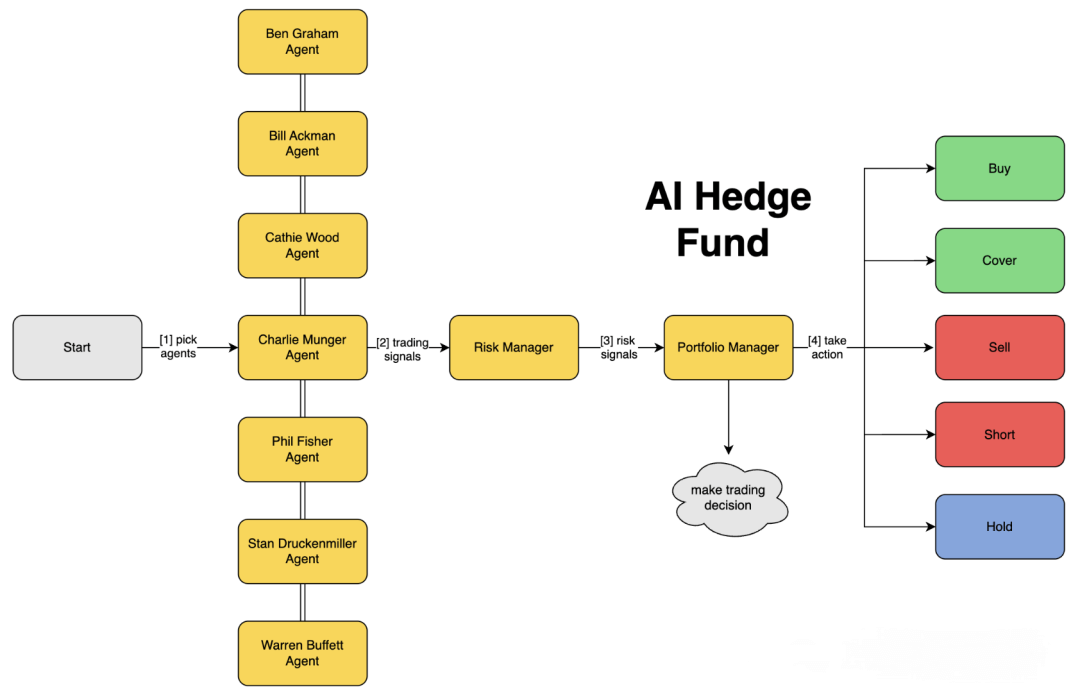Verdent AI – An AI Coding Agent Tool for Automated Task Planning and Decomposition
What Is Verdent AI?
Verdent AI is an advanced AI-powered coding tool founded by former TikTok algorithm lead Zhi-Jie Chen and former Baidu technology/product lead Xiaochun Liu. Built on a multi-agent collaboration framework, Verdent AI transforms developer requirements into executable plans, automatically decomposes tasks, and executes them in parallel—significantly boosting development efficiency.Its core features include automated task planning, multi-agent parallel development, automated code validation and quality assurance, and generation of code review reports. Verdent AI supports both the Verdent Deck desktop app and a VS Code plugin, making it suitable for scenarios ranging from large-scale project development to legacy system refactoring. With its plan-first workflow and enterprise-grade optimization, Verdent AI ensures precise, transparent code generation so developers can focus on innovation instead of repetitive tasks.

Key Features of Verdent AI
1. Task Planning and Decomposition
Transforms developer requirements into actionable plans. It automatically breaks down large tasks into smaller subtasks and assigns them to different agents, ensuring a clear and efficient workflow.
2. Multi-Agent Parallel Execution
Supports multiple AI agents working simultaneously. Each agent operates in an isolated Git environment, preventing interference between tasks and significantly improving development speed.
3. Automated Validation and Quality Assurance
Automatically verifies and checks the quality of generated code, ensuring correctness and reducing the need for manual debugging.
4. Code Review and Documentation Generation
Includes advanced code review capabilities. It automatically generates summaries of code changes and diff reports, helping developers quickly understand modifications.
5. Desktop App & Plugin Support
Provides the Verdent Deck desktop app and a VS Code plugin, enabling developers to manage tasks across environments and collaborate on projects efficiently.
6. Flexible Deployment and Integration
Supports both local and cloud deployments and integrates seamlessly with existing development workflows—ideal for individual developers and enterprise teams alike.
How to Use Verdent AI
1. Register and Install
Visit the official website: https://www.verdent.ai/
Create an account, then download and install the Verdent Deck desktop app or VS Code plugin.
2. Create Projects and Tasks
Create a new project in Verdent Deck or VS Code. Enter a task description and let Verdent AI convert it into an executable plan.
3. Task Assignment and Execution
Verdent AI automatically decomposes the task and assigns subtasks to multiple AI agents, which execute them in isolated environments.
4. Monitor and Manage
Use the Verdent Deck task board to monitor progress in real time and manage the status of multiple agents.
5. Verification and Review
After execution, Verdent AI performs automated verification and quality checks and produces code review reports.
6. Submit and Deploy
Once reviewed, submit the code to your version control system and proceed with deployment.
7. Flexible Subscription
Choose between subscription plans or pay-as-you-go credits depending on your development needs.
Use Cases of Verdent AI
1. Large-Scale Project Development
Accelerates new feature implementation, refactoring, and bug fixes. Supports cross-repository collaboration for improved team productivity.
2. Legacy System Refactoring
Enables agents to work on different modules independently, ensuring logical equivalence and passing regression tests to minimize refactoring risk.
3. Emergency Fixes
Quickly generates patches in isolated worktrees. After validation, patches can be merged without disrupting ongoing development.
4. Multi-Project Parallel Development
Manage multiple projects via Verdent Deck, enabling efficient multitasking and maximizing resource utilization.
5. Personal Project Development
Helps individual developers implement ideas faster, reducing repetitive work and allowing them to focus on core logic and creativity.
6. Enterprise-Grade Code Delivery
Supports production-level projects with strong guarantees on code quality, versioning, and documentation—meeting enterprise development requirements.
Related Posts




